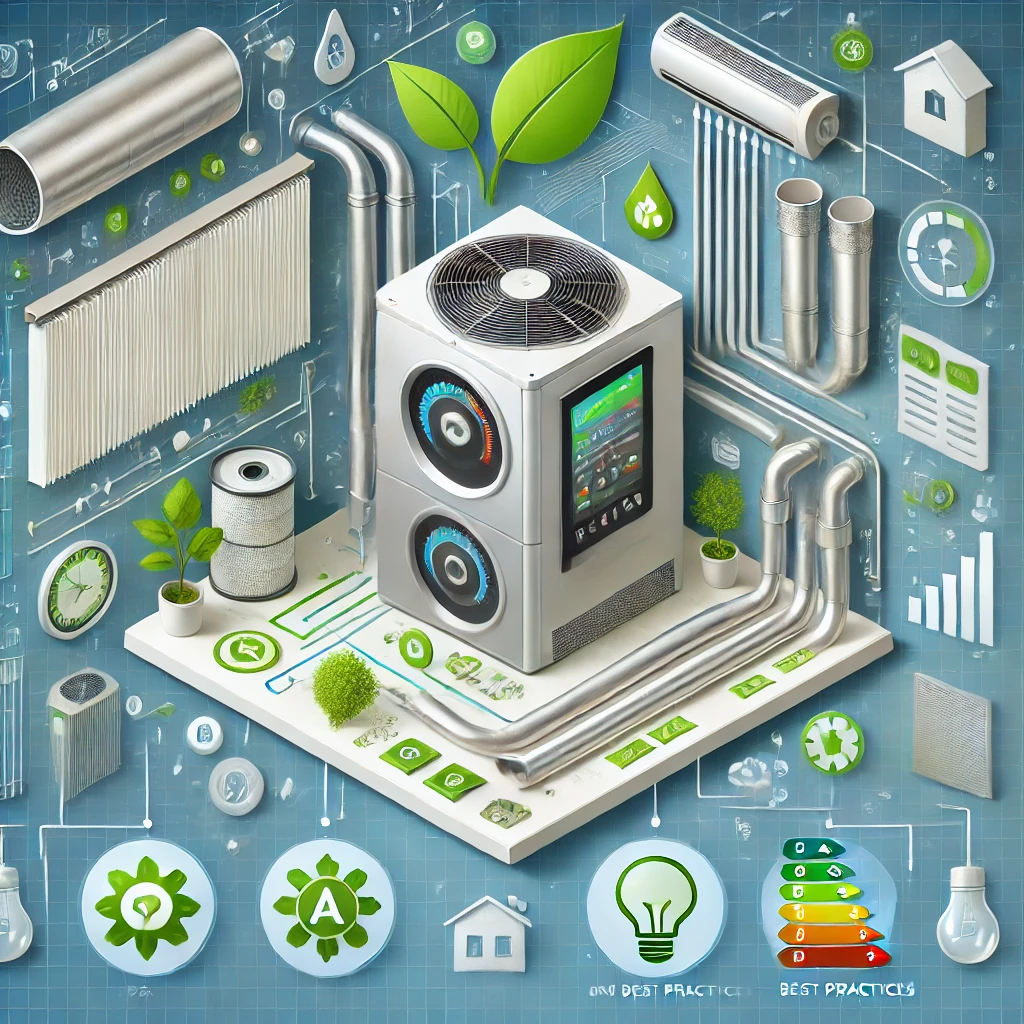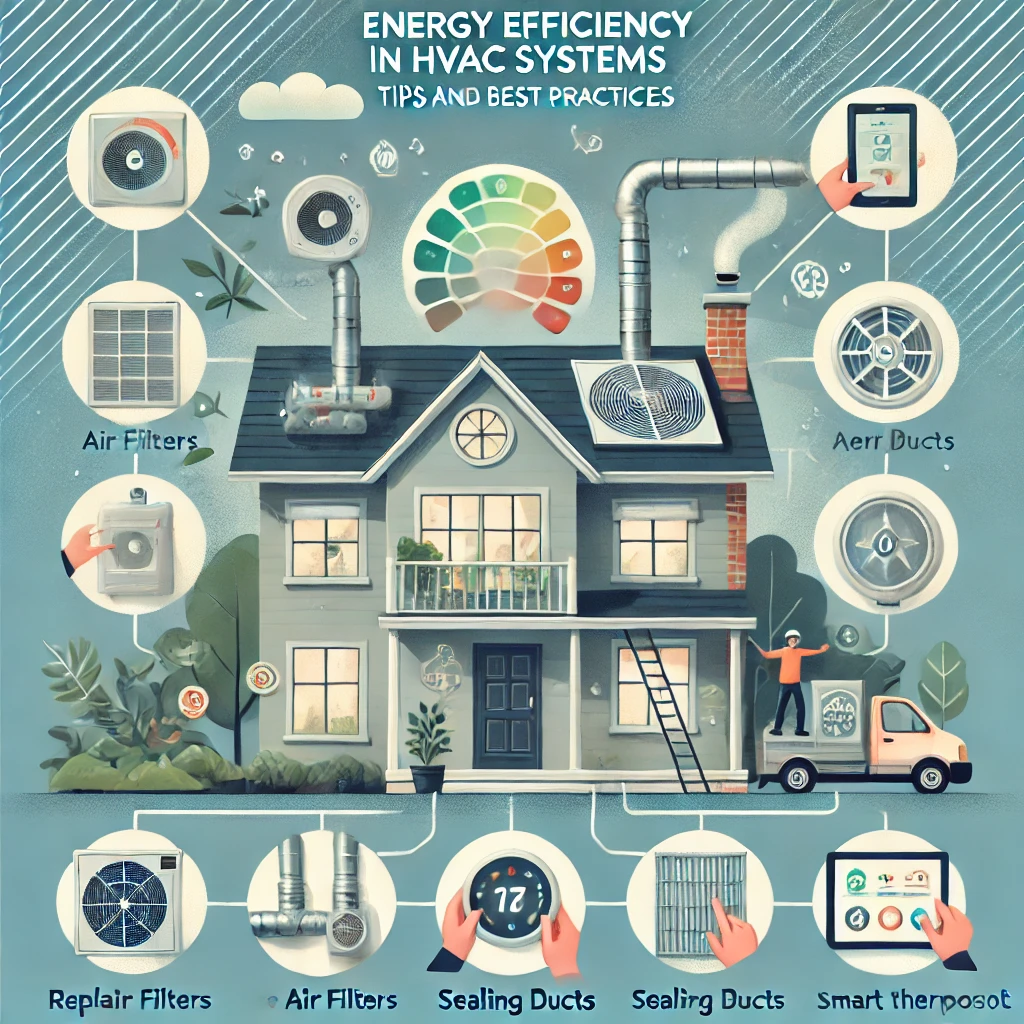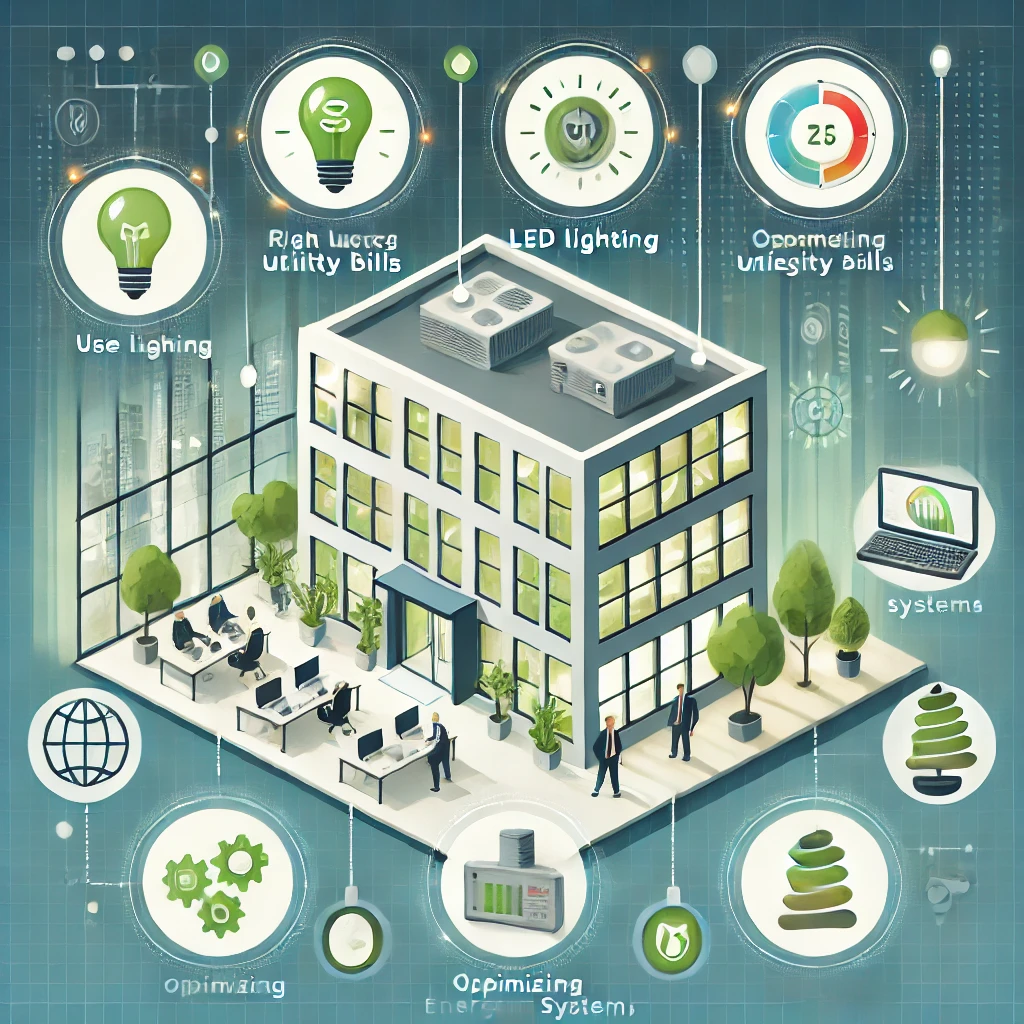Energy Efficiency in HVAC Systems: Tips and Best Practices

Energy efficiency in HVAC (Heating, Ventilation, and Air Conditioning) systems is crucial for reducing energy consumption, lowering utility bills, and minimizing environmental impact. Implementing energy-efficient practices can make a significant difference in your home's comfort and operational costs. Here are some actionable tips and best practices to optimize your HVAC system for energy efficiency.
Tips and Best Practices
1. Regular Maintenance
Routine maintenance is vital for ensuring your HVAC system operates efficiently. Here are some key maintenance tasks:
- Change Air Filters: Replace air filters every 1-3 months to maintain optimal airflow and prevent the system from overworking.
- Clean Coils: Regularly clean the evaporator and condenser coils to ensure they absorb heat effectively. Dirty coils reduce the system's efficiency and increase energy consumption.
- Check Refrigerant Levels: Ensure that your HVAC system has the correct refrigerant levels. Low refrigerant can cause the system to overwork and consume more energy.
2. Upgrade to Energy-Efficient Equipment
Upgrading to more energy-efficient HVAC equipment can provide substantial energy savings:
- ENERGY STAR Certified Systems: These systems meet stringent energy efficiency guidelines set by the U.S. Environmental Protection Agency and can significantly reduce energy consumption.
- Variable Speed Units: These units adjust the speed of the blower motor to match the heating or cooling demand, improving efficiency and comfort.
3. Install a Smart Thermostat
Smart thermostats can help optimize your HVAC system's performance:
- Programmable Settings: Set schedules to adjust the temperature automatically based on your daily routine, reducing energy use when you are not home.
- Remote Control: Control your thermostat from anywhere using a smartphone app, allowing you to make adjustments on the go.
- Learning Capabilities: Some smart thermostats learn your preferences over time and make automatic adjustments to maximize efficiency.
4. Ensure Proper Insulation and Sealing
Proper insulation and sealing can prevent energy loss and improve HVAC efficiency:
- Seal Ductwork: Leaky ducts can lose up to 30% of conditioned air. Use mastic or metal tape to seal any leaks and ensure all connections are airtight.
- Insulate Attics and Walls: Adequate insulation in attics and walls helps maintain indoor temperatures, reducing the workload on your HVAC system.

5. Utilize Zoned Heating and Cooling
Zoned heating and cooling systems divide your home into different areas, each with its thermostat:
- Customized Comfort: Heat or cool only the occupied areas of your home, improving comfort and efficiency.
- Energy Savings: Reduce energy consumption by not conditioning unused spaces.
6. Take Advantage of Natural Ventilation
Utilize natural ventilation to reduce reliance on your HVAC system:
- Open Windows: Allow fresh air to circulate by opening windows, especially during cooler mornings and evenings.
- Use Ceiling Fans: Ceiling fans enhance air movement and can make indoor temperatures feel cooler, reducing the need for air conditioning.
7. Perform Regular System Upgrades
Keep your HVAC system updated with the latest technology to maintain efficiency:
- Energy Recovery Ventilators (ERVs): ERVs exchange stale indoor air with fresh outdoor air while recovering energy from the outgoing air, improving indoor air quality and efficiency.
- High-Efficiency Filters: Upgrading to higher MERV-rated filters can improve air quality and system performance.
Conclusion
Implementing these tips and best practices can significantly enhance the energy efficiency of your HVAC system, leading to lower energy bills and a reduced carbon footprint. Regular maintenance, smart technology, proper insulation, and system upgrades are key to achieving optimal performance and sustainability in your HVAC systems.
For more detailed information and guidance, consult with HVAC professionals who can provide tailored solutions based on your specific needs. By prioritizing energy efficiency, you can enjoy a comfortable, cost-effective, and environmentally friendly home.
Category:


